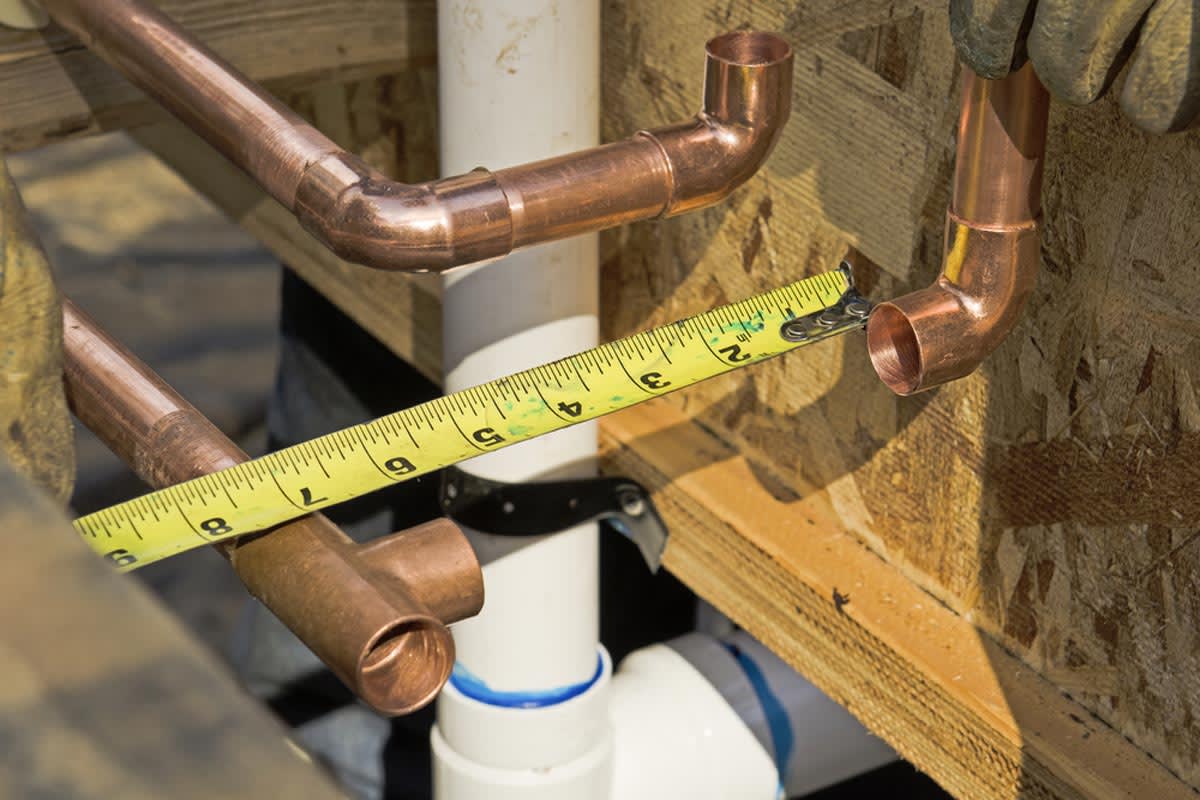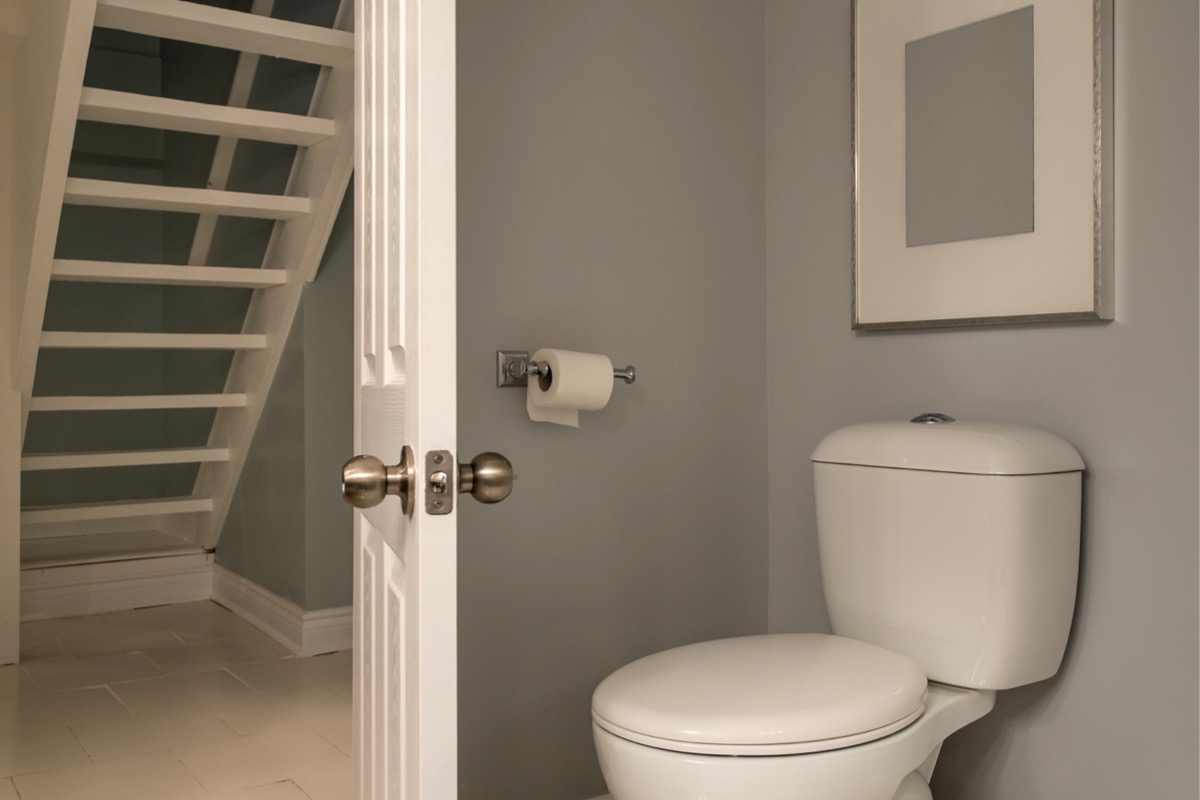We have discovered this post relating to Essential DIY Bathroom Plumbing Tips Every Homeowner down the page on the net and decided it made sense to quickly share it with you on my blog.

For brand-new house owners, understanding and keeping shower room plumbing can save both time and money by preventing costly concerns down the line. Right here are some important bathroom pipes ideas to assist you keep every little thing running smoothly.
Prepare for Winter
Safeguard your pipelines from cold throughout cold weather by shielding pipes in unheated locations like basements, attic rooms, and garages. During extreme cool, let cold water drip from faucets offered by subjected pipelines to assist prevent cold.
Set Up Normal Upkeep
Think about organizing annual assessments with a certified plumbing professional. They can spot problems that you might miss, such as concealed leakages or deterioration on pipelines and components. Regular upkeep aids prolong the life of your pipes system and can protect against emergencies.
Acquaint Yourself with the Key Shut-Off Valve
Understanding where the main water shut-off valve lies in your home is crucial. This enables you to promptly turn off the water system in case of major leaks or throughout plumbing emergencies, preventing substantial water damages.
Frequently Evaluate for Leakages
Little leakages can lead to huge issues. Regularly inspect under sinks, around bathrooms, and near pipes fixtures for any type of indications of leakages. Seek dampness, small drips, or rust. Capturing and repairing leaks early can avoid a lot more severe damages and conserve water.
Maintain Your Water Heater
Guarantee your hot water heater is readied to an appropriate temperature (generally around 120 degrees Fahrenheit) to stop hot and lower power use. Flush the container each year to get rid of sediment buildup, which can decrease the efficiency and lifespan of your heater.
Upgrade Your Fixtures
If your home has older components, think about upgrading to much more effective models. Modern toilets, showerheads, and faucets are designed to utilize much less water while supplying great pressure, which can substantially minimize your water expense and ecological impact.
Be Cautious with DIY Pipes Services
While it's appealing to manage all home repair work on your own, beware with plumbing. Some issues could call for expert knowledge, especially if they involve main water lines or sewage system repair services. Employing a specialist can sometimes be a lot more cost-efficient than do it yourself, particularly if it avoids further damages.
Don't Ignore Slow Drains
If your sink or bath tub is draining gradually, it's typically an indication of a blockage forming. Resolving this very early can stop a complete clog. Make use of a plunger or a plumbing's serpent to clean out particles. Avoid making use of chemical drain cleansers as they can damage your pipes gradually.
Know What Not to Flush
Toilets are not garbage disposals. Stay clear of flushing anything apart from toilet tissue and human waste. Items like wipes, womanly hygiene items, and cotton swabs need to be thrown away in the trash to stop clogs and sewage system backups.
Mount Strainers in Drains
Location filters in your sink and tub drains pipes to catch hair and various other debris before they enter your plumbing system. Cleaning up the strainers frequently will help stop build-up and keep water moving easily.
Verdict
Comprehending and keeping your home's bathroom pipes can protect against numerous usual problems. By adhering to these important pointers, you can ensure your restroom continues to be functional and effective, conserving you time and money over time.
Plumbing Tips for New Homeowners: What Every Homeowner Should Know
Becoming a homeowner is a significant achievement, but it’s only the beginning of a journey filled with responsibilities. Understanding and maintaining your property’s plumbing system is crucial among the countless tasks of owning a home. Most homeowners disregard their plumbing until a problem arises.
Some issues include a leaky faucet, a toilet that won’t stop running, or the unexpected inconvenience of flooding that can quickly turn a dream home into a nightmare. Moreover, using the wrong type of toilet paper or ignoring broken bolts can lead to significant problems that result in costly property damage.
Fortunately, several issues can be prevented with some knowledge and proactive care. As a trusted plumber in North Charleston, SC, Smoak’s Comfort Control is here to guide you through the essentials of residential plumbing. Here are ten plumbing tips every homeowner should know to avoid major problems and ensure a smoothly running system.
Locate the Main Water Shut-Off Valve
Before anything else, familiarize yourself with the location of the main water shut-off valve in your home. This valve controls the water supply to your entire home. In case of a significant leak or plumbing emergency, shutting off this main shut-off valve can prevent extensive and costly water damage. These are typically located near the water meter or where the main water line enters your home.
Assemble a Plumbing Emergency Kit
Crescent wrenches Plunger Pipe sealant Plumber’s tape Screwdrivers Drain snake or toilet auger Understand Your Garbage Disposal
Your garbage disposal is a handy kitchen appliance designed to handle only some things. Avoid putting waste like eggshells, coffee grounds, and grease down the disposal. These can lead to clogged drains and damage the disposal blades. Remember to run cold water while the disposal is on and avoid using harsh chemicals for cleaning.
Prevent Clogged Drains
Installing a mesh drain cover in sinks and showers.
Avoid flushing non-biodegradable items down the toilet.
Regularly clean drain stoppers to remove hair and debris.
Monitor Your Water Heater
Your water heater is crucial in providing hot water for your home. Regularly inspect it for any signs of leaks or corrosion. Set the temperature to around 120 degrees F to prevent scalding and reduce energy consumption. If you notice any issues, consider consulting a professional plumber.
Water Heater Maintenance
Drain the tank: Drain your water heater tank at least once a year to remove sediment buildup.
Check the pressure relief valve: This valve releases excess pressure from the tank. Ensure it functions correctly.
Inspect the anode rod: This rod prevents rusting inside the tank. Replace it if it’s corroded.
Protect Your Pipes
Exposed pipes, especially those in unheated areas, are susceptible to freezing during cold months. Insulating these pipes using foam or fiberglass sleeves can prevent them from bursting. Additionally, let faucets drip slowly during extreme cold weather to reduce the pressure in the pipes.
Another common issue homeowners face is clogged drains due to inappropriate items being flushed down the toilet. While it might seem harmless, flushing toilet paper that’s not septic-safe or other non-biodegradable items can lead to significant blockages. Furthermore, avoid pouring cooking oil or greasy substances down the drain, as they can solidify and cause obstructions.
Regularly checking your pipes for signs of wear, rust, or damage can help you address potential issues before they escalate.
Be Prepared for Leaks
Water leaks can lead to costly repairs and significant water wastage. Regularly inspect areas under sinks, behind toilets, and around appliances for signs of moisture or water stains. The main water shut-off valve is your best friend in case of a significant leak. Knowing its location and how to operate it can save you from extensive water damage. Turn off the main water shut-off valve and then close all the supply valves in your home. This will stop the water flow and allow you to identify the source of the leak. Be cautious about using chemical drain cleaners as they can be harsh on your pipes and might exacerbate the problem. Instead, opt for natural solutions or consult a plumbing professional. Also, watch your water heaters and toilet bowl for any signs of leaks or malfunctions.
Know When to Call a Professional
While DIY solutions can address minor plumbing issues, some problems require the expertise of a professional plumber. If you need clarification on the situation or if the plumbing problem continues, it’s best to seek professional help.

Or Book Technician Here